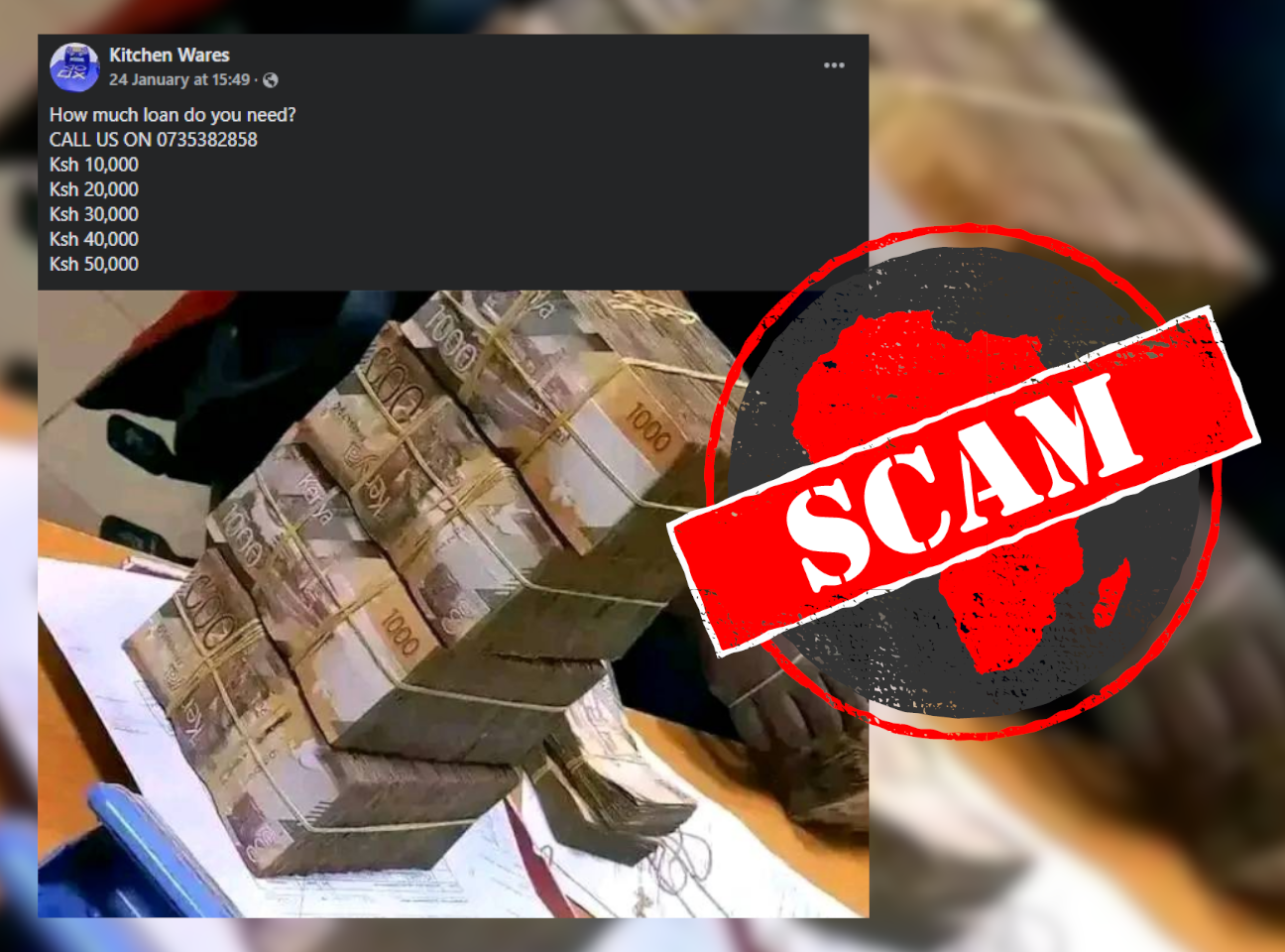IN SHORT: This Facebook page promises Facebook users in Kenya instant loans of different amounts. But it’s just another imposter page looking to defraud unsuspecting Kenyans.
The Facebook page Kitchen Wares is advertising loans to Kenyans on Facebook.
The page offers loans of up to KSh50,000 (approximately US$304) and claims they will be disbursed “within 3 minutes”.
In other posts, the page has displayed photos of cellphones, game consoles and kitchen utensils, and claims that users can pay for these in instalments.
Some of the ads feature bundles of Kenyan money, perhaps to entice users.
The page lists two phone numbers where users can either call or send a message to order.
But are the offers to be trusted? We checked.

Signs of scam
Africa Check noted that the initial posts on the page featured graphics and logos from Zenka, a digital credit provider operating in Kenya. Some posts also claim the loans are from Zenka. But Zenka has its own official Facebook page with over 66,000 followers that can be accessed from its website www.zenka.co.ke. This made us suspicious.
We also noted that none of the contacts provided match those posted by Zenka. This suggests the page could be impersonating Zenka.
While established financial institutions that issue loans would normally have functioning websites or apps where customers could apply for funds and engage further, this account has neither. Instead, it provides a phone number where users are asked to call or text. This is also a red flag.
When we called the number to inquire about its loan offers, a person told us that a registration fee must be paid ahead of time for every loan. This is usually a trick to get users to send money, without ever receiving a loan.
The Facebook page is fake and its offers are scams. To help protect yourself from such scams, read our guide on how to spot them here.
Republish our content for free
For publishers: what to do if your post is rated false
A fact-checker has rated your Facebook or Instagram post as “false”, “altered”, “partly false” or “missing context”. This could have serious consequences. What do you do?
Click on our guide for the steps you should follow.
Publishers guideAfrica Check teams up with Facebook
Africa Check is a partner in Meta's third-party fact-checking programme to help stop the spread of false information on social media.
The content we rate as “false” will be downgraded on Facebook and Instagram. This means fewer people will see it.
You can also help identify false information on Facebook. This guide explains how.




Add new comment